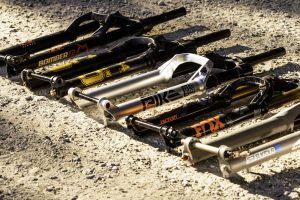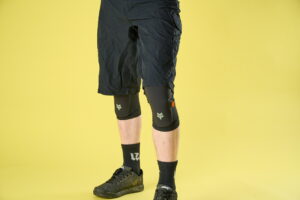They work great, come in a ton of colours, and cost under £40, so what’s not to love?
Burgtec MK4 Composite pedals review
Burgtec MK4 composite pedals’ 16mm tall composite platform is a close approximation of the alloy version, with 1mm concave cut away in the centre.
Best mountain bike flat pedals for 2020: metal and plastic
It would have been easy for Burgtec to pick a pedal from a factory catalogue and add its own branding, but that’s not what it has done – instead it’s copied the shape of its award-winning aluminium Penthouse Mk5 pedal. The MK4 Composite isn’t quite identical – it’s around 4mm taller all round – but it has a similar amount of concavity and an identical weight.
The MK4 Composite has eight pins per side in the same arrangement and, like most of those used in plastic pedals, these are a set screw design held in place with a captive nut, meaning if you snap one, spares are easy to buy and install.
Burgtec uses a cheaper hardened steel axle in the MK4 Composite and it has a 6mm hex fitting on the end rather than the 8mm on the Penthouse, and it also spins on a cheaper bearing, which is a combination of a bearing and a bushing. The axle is also a little bit longer than the Penthouse, which we actually prefer because the pedal sits out further from the crank arm and reduces heel rub.
Compared to the Penthouse, the Composite MK4 has a similar footprint, but it feels ever so slightly less secure in the wet – which to be fair we think is just the inherent nature of the plastic surface. That said, it’s easily the grippiest plastic pedal here and feels incredibly solid when pedalling hard or landing a drop. It also has some of the smoothest bearings on test and the axle has also remained rock solid throughout.
The Composite Mk4 is no lighter than the Penthouse, and it’s slightly taller, but it has the same shape and overall aesthetic. What sets this one apart, and makes it our test winner, is the price – for £40 it really is unbelievable value.
















